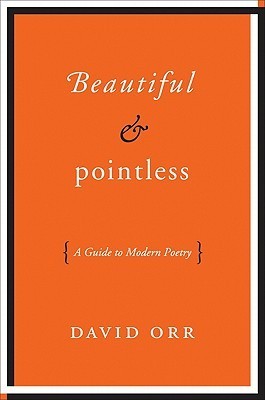What do you think?
Rate this book


224 pages, Hardcover
First published April 1, 2011
Rare is the poet who doesn't view himself as deeply invested in political life, and yet the sloppy, compromised, and frequently idiotic business of democracy--which is, for all its flaws, the way most political change occurs in the country--rarely attracts the attention of our best poets. Is this the inevitable order of things? Or are all the talkers simply talking past each other.
On the other hand, there's something lovely, if sad, in the bestowal of such a gift [the passionate, loving gift of one's time] on an activity that not only can never return the sentiment, but lacks even the consciousness to understand the giver's generosity. It seems beautifully pointless, or pointlessly beautiful, depending on your level of optimism.